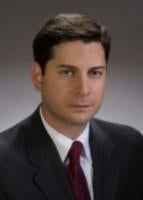On Friday, after a two-month trial and just over three days of deliberation, a jury in the Eastern District of New York returned its verdict in the case against Roger Ng, finding the international banker guilty on all counts. Bracewell attorneys personally observed the closing arguments of counsel, which were well presented and hard fought on both sides.
The verdict came as a surprise to some who were skeptical of the government’s charges against Ng, former Managing Director of Goldman Sachs subsidiaries in Southeast Asia, for money laundering and violations of the Foreign Corrupt Practices Act (FCPA). Jury trials under the FCPA are a rarity, as many FCPA defendants historically have been corporate entities that negotiated Deferred Prosecution Agreements with the government, and thus avoid the public scrutiny that is informed by trial.1 Ng’s case, which started under the last administration, is illustrative of the current trend in FCPA enforcement strategies to target not only corporate entities but also the individuals responsible for corrupt payments.2 Ng faces up to 20 years in prison for each of his three counts of conviction, although the district court has broad discretion in imposing his ultimate sentence.
Corporations are well aware of the need to have robust compliance and anti-money laundering (AML) programs to address risks that can arise from government enforcement action, but the Ng trial provides unique insight into some of the danger areas. The Bank Secrecy Act3 sets forth the principal responsibilities of financial institutions with respect to AML due diligence requirements and the FCPA contains two primary provisions: (1) an anti-bribery provision that prohibits payments to foreign officials for the purpose of obtaining business and (2) an accounting provision that requires companies to keep accurate financial records and maintain an adequate system of internal accounting controls to detect and prevent FCPA violations.4 The FCPA’s reach is broad and applies not only to U.S. companies and citizens but also to certain foreign issuers of securities and their officers, employees, and agents if they engage in any act in furtherance of a corrupt payment within the jurisdiction5 of the United States.6 Accordingly, meetings, wire transfers, or phone calls by a foreign entity or individual that pass through the U.S. may be sufficient to confer jurisdiction.
Roger Ng was convicted of conspiring to violate the anti-bribery provisions of the FCPA, conspiring to circumvent internal accounting controls of the FCPA, and conspiring to commit money laundering, all stemming from the charges of a 2018 indictment brought by the U.S. Attorney’s Office in the Eastern District of New York in partnership with Main Justice.
The conviction centers around a multi-billion dollar scheme to siphon funds from 1MDB, a Malaysian state-owned and controlled fund originally intended for projects to benefit the Malaysian economy. Based on the record at trial, Ng and his co-conspirators fraudulently diverted $1.6 billion from 1MDB to pay bribes to foreign officials in Malaysia and Abu Dhabi to obtain lucrative business for the bank. Ng reportedly received $35 million in kickbacks for his role in the scheme.
Jho Low, a Malaysian socialite and alleged co-conspirator, with connections to high-ranking foreign government officials, appears to have so far evaded capture and prosecution in the United States. Co-conspirator Tim Leissner, former senior bank official in Southeast Asia, pleaded guilty to violations of the FCPA pursuant to a cooperation agreement and served as the government’s key witness at trial.
In closing arguments, the government presented a detailed case against Ng, referencing emails, bank records, and meetings between the co-conspirators to establish Ng’s knowledge of and intent to commit the underlying fraud. Using hundreds of exhibits, the prosecution wove together an intricate tale of “glory and greed,” often citing, in Hollywood fashion, Ng’s investment in the film “The Wolf of Wall Street” as one of the means used to launder the illicit proceeds.
The very skilled defense team maintained Ng’s innocence throughout, claiming that the $35 million in alleged kickbacks was actually investment proceeds owed to the defendant’s wife, and that Leissner was the true mastermind behind what the defense agreed was a “massive fraud.” Ng’s counsel argued that the only evidence proving Ng’s knowledge of the scheme was the testimony of Leissner, who admitted on the stand to being a prolific liar in other contexts. Ultimately, the jury was persuaded by the government’s case, concluding that Ng had agreed to participate in the bribery and that the $35 million constituted payment for his participation.
In a public press release, the current U.S. Attorney for the Eastern District of New York, Breon Peace, called the conviction “a victory for not only the rule of law but also for the people of Malaysia,” and issued a stark warning to individuals motivated by greed to circumvent the requirements of the FCPA: “You will be caught, prosecuted and convicted, like Ng, and face a long prison sentence.” When combined with the Attorney General and Deputy Attorney Generals’ recent public remarks, the conviction demonstrates a critical need for up-to-date, comprehensive corporate compliance policies that address all requirements of the FCPA so that companies can quickly identify bad apples within their ranks and limit potential fallout.
In addition to sending a powerful message of deterrence, the jury verdict confirms the long geographic reach of the FCPA. Indeed, the question of how a Malaysian banker ended up in a Brooklyn courtroom was emphasized in the defense closing arguments, but was ultimately not a barrier to the jury’s decision to convict Ng. Although the co-conspirators never set foot in the Eastern District of New York in connection with the scheme, and the funds neither originated nor ended up there, the electronic transfer of funds using wires that passed through the district evidently was sufficient to establish both local venue and federal jurisdiction.
As the DOJ and SEC have proclaimed that they are ramping up FCPA enforcement, companies with foreign contacts and interests should ensure strict compliance with federal law by revisiting internal accounting controls and AML programs and by educating their employees and managers about danger areas and the unforgiving legal principal of respondeat superior.7 Proactive compliance measures are especially vital given the strong incentives for whistleblowers, who have financial incentives to report corporate misconduct.8 As the Ng case demonstrates, failure to do so could lead not only to steep fines, but also prison time.
FOOTNOTES
1. In October of 2020, Goldman Sachs and its Malaysian subsidiary entered into a deferred prosecution agreement with the United States, agreeing to pay $2.9 billion for their involvement in the FCPA violations.
2. “Attorney General Garland has made clear it is unambiguously this department’s first priority in corporate criminal matters to prosecute the individuals who commit and profit from corporate malfeasance.” Lisa Monaco, Deputy Attorney General, Dep’t of Justice, ABA’s 36th National Institute on White Collar Crime (October 28, 2021).
3. 31 U.S.C. 5311 et seq.
4. See 15 U.S.C. § 78dd-1 (for anti-bribery provisions); § 78m(b)(2) (for accounting controls provisions)
5. Note however, that in United States v. Hoskins, 902 F.3d 69 (2d Cir. 2018), the Second Circuit found that the defendant in that case, Lawrence Hoskins, a United Kingdom national, did not fall within the jurisdictional reach of the FCPA, stating that the statute, “clearly dictates that foreign nationals may only violate the statute outside the United States if they are agents, employees, officers, directors, or shareholders of an American issuer or domestic concern.” 902 F.3d 69, 97 (2d Cir. 2018).
6. See 15 U.S.C. § 78dd-3.
7. Respondeat superior is a legal doctrine whereby employers are held legally responsible for the wrongful acts of employees if they were acting within the scope of their employment.
8. 15 U.S.C. § 78u-6(a)(3)





 />i
/>i

